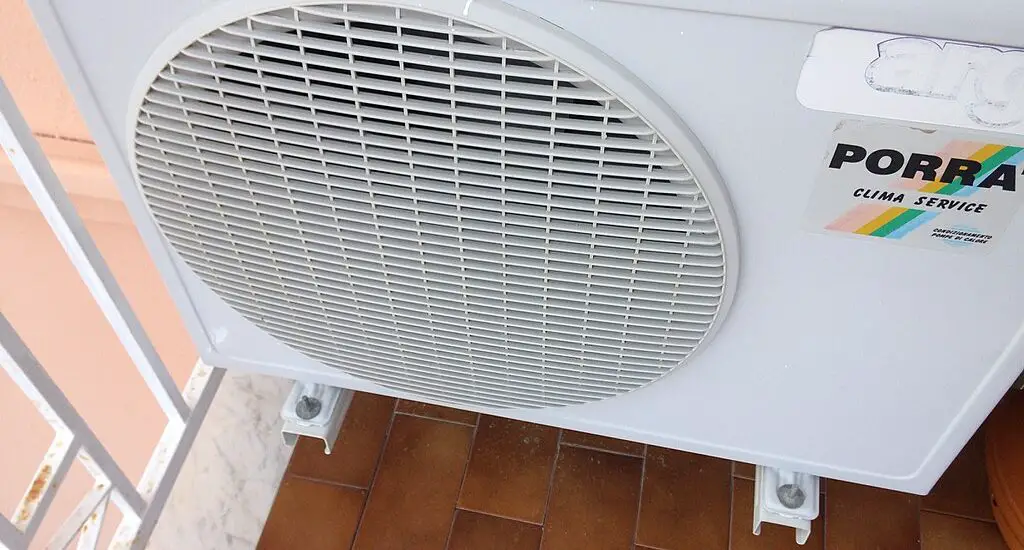If your AC smells like freon, this guide will arm you with the necessary knowledge to identify, understand, and resolve this issue.

Table of Contents
Identifying the Freon Smell in Your AC
Detecting a freon smell in your AC is the first step in addressing a potential leak. Freon, or refrigerant, is a key component in your AC that helps in cooling the air. It’s typically odorless, but additives in the refrigerant can produce a faint, sweet, chloroform-like smell when leaking. Apart from the smell, other signs of a freon leak can include:
Reduced Cooling Capacity: Your AC may not cool as effectively, or you might notice it takes longer to cool the room.
Ice on Evaporator Coils: Leaking freon can lead to ice or frost buildup on your AC’s evaporator coils.
Hissing Sounds: A subtle hissing sound can be heard where the leak is occurring.
Increased Energy Bills: A freon leak can make your AC work harder, leading to higher energy consumption.
Being aware of these signs will help you better identify if your AC smells like freon and if it’s due to a leak.
Safety First: Understanding the Risks
Freon leaks pose several risks that should not be overlooked. While newer types of refrigerants are less harmful than older ones, they can still pose health hazards in concentrated forms. Exposure to freon can lead to a range of health issues:
Respiratory Problems: Inhaling freon can irritate the respiratory tract and cause difficulty in breathing, especially for individuals with pre-existing conditions.
Skin and Eye Irritation: Direct contact with freon can cause frostbite-like symptoms on the skin and irritation in the eyes.
Asphyxiation: In high concentrations, freon can displace oxygen, leading to asphyxiation.
It’s crucial to ensure good ventilation in areas where a freon leak is suspected and to avoid direct exposure to the refrigerant.
Inspecting Your AC Unit for Leaks
Inspecting your AC unit for freon leaks involves several steps. Start by visually examining the unit:
Check for Oil Residues: Look for oily spots on AC pipes or coils, as this can be a sign of leaking refrigerant.
Listen for Hissing Sounds: Pay attention to unusual hissing or bubbling noises from the AC unit, which could indicate escaping gas.
Observe Performance Issues: Note any decline in cooling efficiency or unusual behavior from the AC.
If you notice any of these signs, avoid further inspection or attempts to fix the leak yourself, as this could be hazardous.
Professional Assessment and Repair
Addressing a freon leak requires professional expertise. HVAC technicians are equipped with the tools and knowledge necessary for safe and effective repairs. When a technician arrives, they will:
Conduct a Thorough Inspection: Using specialized tools like electronic leak detectors, the technician will locate the source of the leak.
Repair the Leak: This may involve replacing faulty components or sealing the leak area.
Recharge the Refrigerant: The technician will refill the refrigerant to the manufacturer-specified level.
Test the System: After repairs, the technician will test the system to ensure it’s functioning correctly and safely.
Professional intervention not only resolves the immediate issue but also helps in preventing potential future problems.
Preventive Measures to Avoid Future Issues
Regular maintenance is essential in preventing freon leaks. Actions you can take include:
Scheduled Maintenance: Have your AC system professionally inspected and serviced at least once a year.
Regularly Replace Filters: Clean or replace your AC filters every 1-3 months to ensure optimal performance.
Monitor AC Performance: Stay attentive to any changes in your AC’s efficiency or sounds, which can indicate underlying issues.
These preventive steps help in maintaining the health of your AC system, thus reducing the likelihood of future freon leaks.